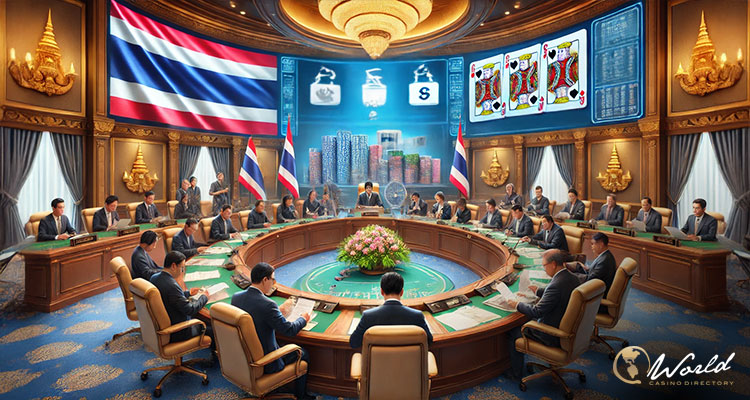Thailand’s government has taken a significant step towards legalizing casinos, with the cabinet approving a draft bill that would permit the establishment of integrated entertainment complexes. This move is aimed at boosting tourism, attracting foreign investment, and tackling illicit gambling activities. However, the bill has sparked debate due to stringent financial requirements for Thai nationals wishing to enter these casinos.
The government envisions these entertainment complexes as catalysts for economic expansion. Prime Minister Paetongtarn Shinawatra emphasized that the legislation remains subject to parliamentary scrutiny, where revisions may still occur. If passed, the bill will require approval from both the Senate and the King before becoming law.
The proposed legislation stipulates that the casino floor can occupy no more than 10% of the entire entertainment complex. This measure aligns with the government’s strategy to position these establishments as multi-purpose tourism hubs rather than solely gambling venues. Revenue generated from the project is expected to contribute to national development, social welfare programs, education, and infrastructure improvements.
Controversy Over Wealth-Based Entry Restrictions
One of the most contentious provisions in the draft bill is the requirement for Thai citizens to have at least 50 million baht in a fixed deposit for six months before they can enter a casino. Additionally, an entry fee of 5,000 baht would be imposed. Critics argue that this restriction effectively excludes the majority of the population, given Thailand’s per capita GDP of approximately $7,300.
Deputy Finance Minister Julapun Amornvivat had previously suggested that this financial requirement might be removed, acknowledging concerns that it would significantly limit local participation. However, the government opted to submit the bill in its current form, with the possibility of amendments during legislative proceedings.
Industry experts have labeled this requirement an “absolute deal-breaker,” warning that it could deter potential investors and hinder the success of Thailand’s planned gaming industry. Some stakeholders have suggested alternative measures, such as requiring a three-year tax history instead, but skepticism remains over whether such policies would be more effective.
Public Opinion and Political Resistance
Public sentiment on the bill remains divided, according to Bangkok Post. While an online public hearing conducted from February 28 to March 14 found that 80% of 71,300 respondents supported the initiative, other surveys indicate widespread concerns about the social impact of legalized gambling. Critics argue that casinos could lead to increased financial hardship and other social issues.
Protests against the bill have emerged, with around 80 demonstrators gathering near Government House to oppose the legislation. Activist groups contend that casino operations in developing countries often fail to improve citizens’ lives and instead foster illicit activities. A petition calling for the withdrawal of the bill has already been submitted to the prime minister.
Thailand’s Potential as a Major Gambling Destination
Despite opposition, proponents believe that legalizing casinos could position Thailand as a leading gambling destination. A Citi report estimates that nearly half of Thai adults aged 20 and older could become casino patrons, potentially making the country the third-largest gambling market globally.
The government aims to attract at least 100 billion baht in investment and anticipates an annual increase in foreign tourist arrivals of 5% to 10%. Revenue from casino operations is projected to exceed 12 billion baht per year. However, some analysts caution that strict entry requirements for locals could hinder these ambitions.



